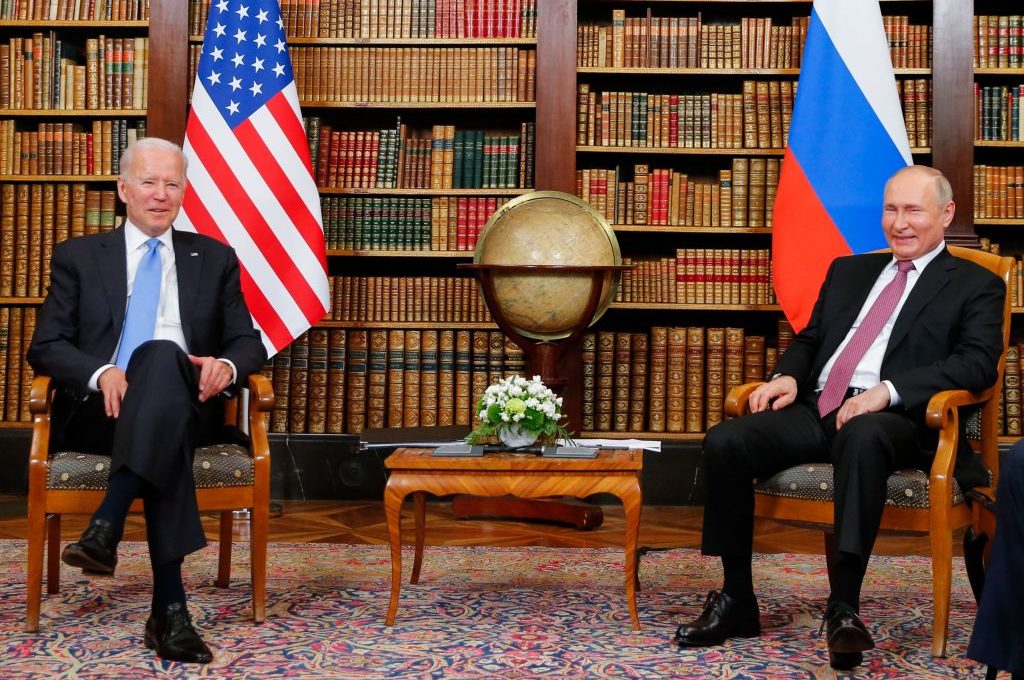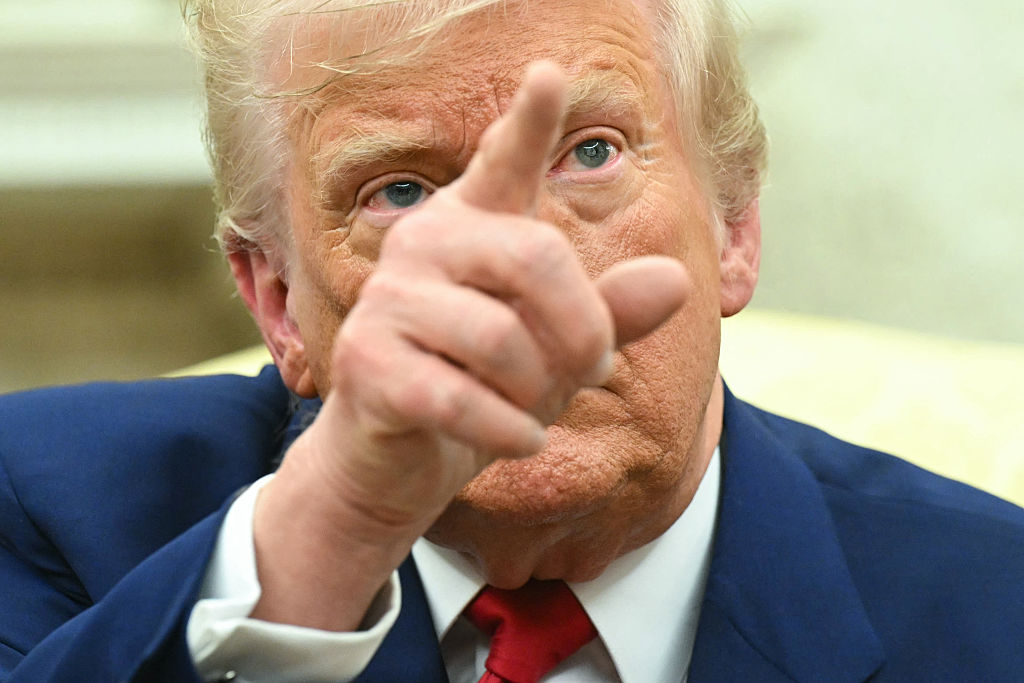The US-led expansion of NATO in the direction of the Russian border took place when America was at the peak of its power — the “unipolar moment” — and when Russia had hit geostrategic rock-bottom. The global balance of power has changed since then, and that helps explain what is happening now.
Vladimir Putin is correct when he argues that, since the collapse of the Soviet Union, the United States and its Western allies have taken advantage of Russian weakness. It may sound simplistic, but back then in the immediate aftermath of the Cold War, American policymakers did a lot of things just because, well, they could do them. And then they created geostrategic narratives to justify what they wanted to do.
“Our first objective is to prevent the re-emergence of a new rival,” Paul Wolfowitz, the undersecretary of defense policy, asserted in a 1992 statement on America’s mission in the post-Cold War era. The “dominant consideration” was that the US “endeavor to prevent any hostile power from dominating a region whose resources would, under consolidated control, be sufficient to generate global power. These regions include Western Europe, East Asia, the territory of the former Soviet Union, and Southwest Asia.”
The main problem with that Defense Planning Guidance was the lack of serious debate in Washington about exactly what America’s mission in the post-Cold War era should be. Wolfowitz’s statement reflected the views of a few members of the foreign policy establishment and can be seen in retrospect as a first draft of a neoconservative manifesto.
It is important to recall that President George H.W. Bush, under whom Wolfowitz had served, did not buy into the notion of the United States as a global imperial power. Bush I and his advisors had cautiously managed the collapse of the Soviet Union and done their best to refrain from antagonizing its last leader, Mikhail Gorbachev.
For example, Bush I resisted pressure from Republicans to support the idea of an independent Ukraine. Moreover, following the principle that great powers do not do things just because they can do them, but in order to protect and advance the national interest, Bush I rejected proposals by Wolfowitz and other neoconservatives that the United States invade Iraq, depose its leader Saddam Hussein and democratize it.
President Bush remained committed to the original goals of the first Gulf War, forcing Iraq out of Kuwait. He did that through a successful and not very costly military operation that enjoyed wide international support — and then ordered the troops home. That kind of realpolitik approach — notwithstanding the Bush administration’s rhetoric about a New World Order — was swept aside first by the Wilsonian liberal internationalists who dominated the administration of President Bill Clinton during the civil war in the former Yugoslavia and then by the neoconservative crew operating under President George W. Bush that drew the US into disastrous wars in the Middle East.
During the Cold War, American foreign policy had a coherent grand strategy: containment. There was clear consensus in Washington and in the country for it. The occasional foreign policy failure, such as the Vietnam War, resulted from a misinterpretation of that grand strategy and overreaction to threats posed by the communist bloc.
We must underline the following: the idea that the United States should play the role of a hegemonic global superpower that should brook no obstacle to the advancement of its interests and values was never embraced as a grand strategy during the Cold War by either the foreign policy establishment or the American people. The latter were looking forward to receiving that “peace dividend” now that the Soviet Union was no more.
There was certainly no consensus over how to define American interests absent the Soviet threat. Adding Poland, Hungary, the Czech Republic and Germany to NATO made perhaps some sense as a gesture to the former “captive nations” who had suffered so much during both World War Two and the Cold War. But it was never explained how that decision and the risks it brought — a commitment to defend those nations by extending NATO to Russia’s borders — served the US national interest.
For liberal internationalists and neoconservatives, Russia, even after losing much of its territories and population, remained a potential threat to the West, and its historic authoritarian tendencies meant it was bound to emerge sooner or later as an imperialist power. Russia therefore needed to be tamed, made to play according to the rules set by the United States.
The US thus ended up siding with the anti-Serbian coalition during the Yugoslavian wars of succession less because of the ethnic cleansing practiced by Slobodan Milošević and his deputies — after all, Croatian warlord Franjo Tuđman and his militias were responsible for similar human rights violations — but to ensure that the balance of power in the Balkans did not tip in favor of the Serbs’ Russian allies.
The Clinton administration never really explained to the American public how military intervention in the Balkans would promote national security. Nor would Americans ever learn why inviting the Baltic states, with their large Russian-speaking populations and long borders with Russia, to join NATO was in their national interest. Nor would they be told why committing the United States to go to war to defend the Baltic states was in any way good for them.
Those same policymakers who supported military intervention in the Balkans should not now express bewilderment that Russia saw these decisions as directed against their nation. The Russians made it clear that the United States and its allies were playing with fire when they invited Georgia and Ukraine to join NATO — equivalent to placing the militaries of Mexico and Venezuela under Russian control.
The current crisis over Ukraine is not only an opportunity for the United States to reassess its relationship with Russia in the aftermath of the costly wars in the Middle East and the challenges in East Asia. It’s a chance for the US to draw the outlines of a new and coherent grand strategy that would determine the role America would play in the world today.
The United States has the largest and most advanced economy on earth — and the largest and most powerful military. Even those who are doing a lot of cheerleading for China these days agree that country will not become the number one economy before 2050 — and even that proposition is very iffy. No one expects any of the United States’ potential global rivals, including Russia, which has a GDP smaller than that of Italy, to overspend the United States on defense and overtake it in the military sphere.
So while the US will probably remain on top for quite a while, it is becoming clear that domestic resistance and rising global challenges will make it more and more difficult for Washington to secure its military position on its own. As a consequence, the notion of an American monopoly over the international system will have to be replaced with the concept of oligopoly.
The choice that Washington now faces is between continuing to strive for strategic dominance — or working together with other powers, including Russia and China, to contain threats to the international system. In that case, the United States will achieve primus inter pares (first among equals) — which is the next best thing to being number one.

























